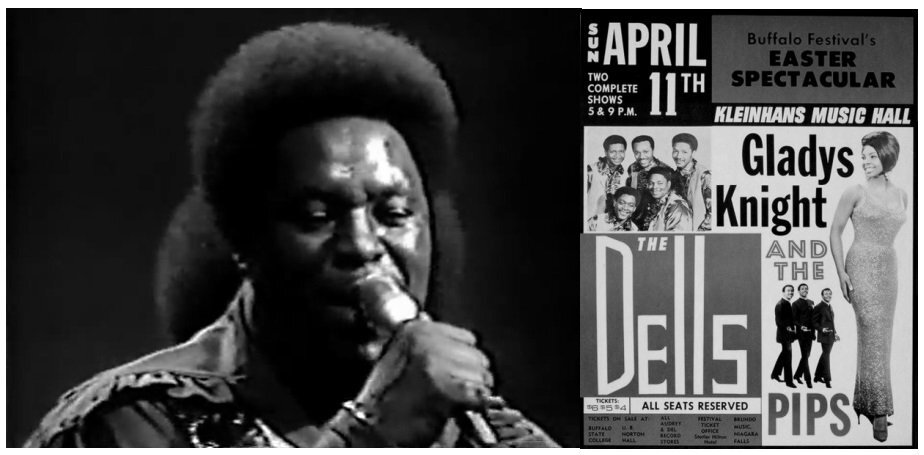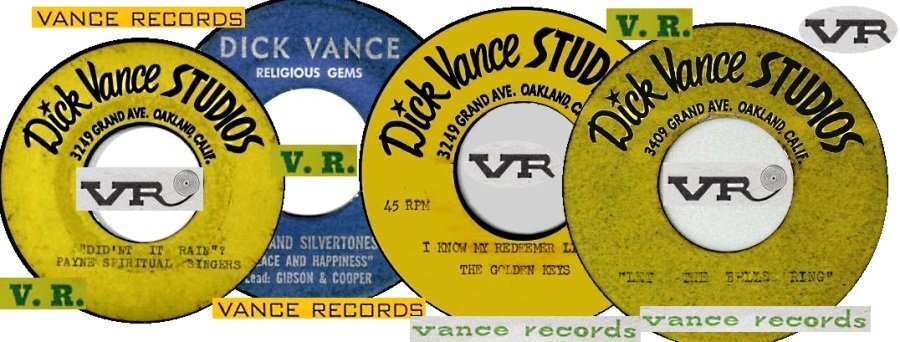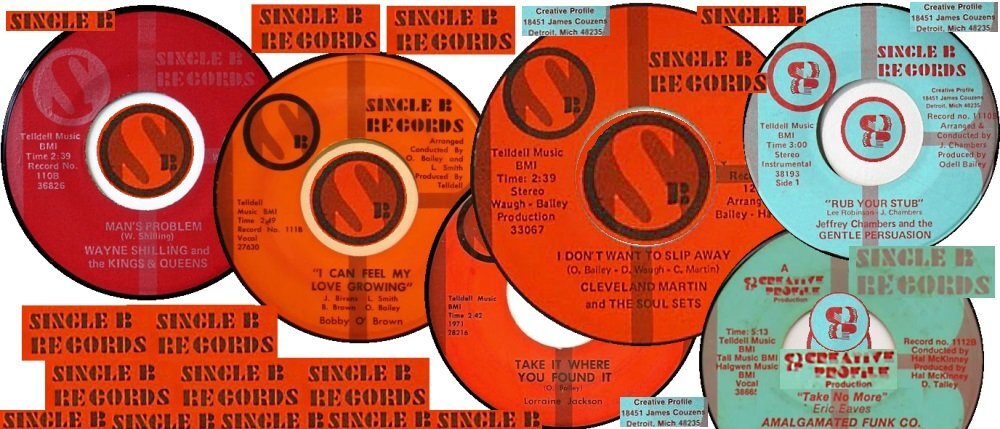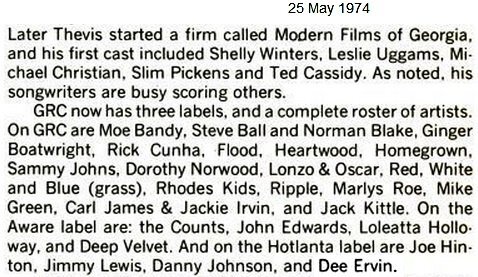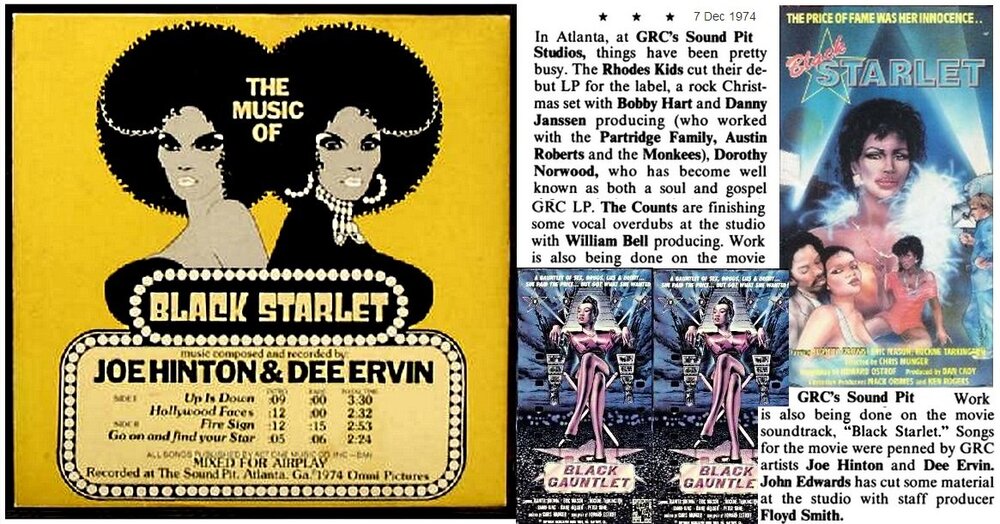-
Posts
7,268 -
Joined
-
Last visited
-
Days Won
47 -
Feedback
0%
Content Type
Forums
Event Guide
News & Articles
Source Guidelines and Help
Gallery
Videos Directory
Source Store
Everything posted by Roburt
-
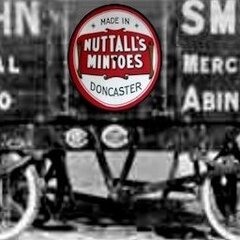
Collecting Gospel Albums ! - Any Recommendations Out There ?
Roburt replied to The Tempest's topic in Look At Your Box
Getting back on topic ........... ... here's a brand new gospel release that sounds good (if you can accept electronic backing) ......... .... the guy was on the Pittsburgh soul / funk scene a the end of the 70's through the early 80's .... https://www.iammisterchandler.com/ -

Collecting Gospel Albums ! - Any Recommendations Out There ?
Roburt replied to The Tempest's topic in Look At Your Box
He must have done as I recall dancing to it on a regular basis at nighters he DJ'ed at back then ..... and as I lived in Worksop, I was too old to make it back from any nighters much further afield than Roderum then. Only made it to the likes of Stafford, Hinckley, the Ritz, Loughboro, Leicester, Huddersfield & Bradford on the odd occasion. Liked the Donn Thomas track so much, I bought a copy of the LP mesen at the time. Mind you I only said that I THINK Richard was playing it as early as 81, my memory is a bit shot these days. Have to pull out some old copies of Blackbeat mag to check the venue reviews for confirmation. -

Collecting Gospel Albums ! - Any Recommendations Out There ?
Roburt replied to The Tempest's topic in Look At Your Box
Yep, Richard was on Radio Hallam (Sheffield) from around 1980 to 1986 and he was DJing at Rotherham Clifton Halls over approx the same period .... ... he played loads of great newly released US indie soul / major label soul / gospel during that period ... I THINK the Donn Thomas 'You're The One' album was one he played from it being a new release (he deffo played it soon after if not from when it first came out in 81). -
A guy posted this (28+ minutes long) clip of a 1972 US TV show performance by the Dells up on SDF ..... it had been on youtube for around 9 months anyway BUT I wasn't aware of it .......... ... the BEST GROUP EVER (in a tie with the 60's Impressions, however these guys lasted forever, always together) ... ...... THE DELLS ..... back in their prime period when their vocal powers were at a peak .. ........ WOW, just pure magic ...... .... they put so much effort & emotion into their performance that it's breathtaking ...... ...... only trouble is I want one of those shirt / waistcoat sets for mesen now .........
-
"Changing For You" on a UK R&B label 7" is another Chi-Lites goodie from around that period ...... don't think it escaped on a 45 anywhere but the UK. I bought a couple of copies just after it had been released (10p each) ...... not a bad decision on my part. PLUS ... if you like typical Chi-Lites slowies, "Making Love" on the same UK label / format is a goodie as well.
-

Collecting Gospel Albums ! - Any Recommendations Out There ?
Roburt replied to The Tempest's topic in Look At Your Box
A big SeArling play on Radio Hallam and at Clifton Halls. -
With the quality of scanners & home printers these days ........... it's easy to make a copy of an expensive record's label, stick it on a crap but similar looking (vinyl / styrene style) 45 and frame it up. When its behind glass, its very hard to tell that its not the real thing. This even works with LPs as some shops sell great 12" x 12" square frames that are made just for this purpose. Many on here say they wouldn't contemplate framing up a record ... BUT ... just what do they hang on their record room walls then (3 flying ducks, a poster of a woman tennis player scratching her bum or what). I have framed records, a collage of old correspondence & record release flyers from Soul City record shop, a huge poster sized signed photo of Sam Dees and a similar photo of 3 singers at an early Southport Weekender (David Sea, Jesse James + a guy who had stuff out on Paul Mooney's label).
-
HEY, Rosie Gaines made some great records !!!! (they just don't sound 60's).
-

Collecting Gospel Albums ! - Any Recommendations Out There ?
Roburt replied to The Tempest's topic in Look At Your Box
... AND ... many gospel albums (& 45's) were vanity projects organised by the group / singer themselves. They would pay for time in a local studio & record 2 or 9/10 tracks from their current live show list. Then get a few (100, 500) copies pressed up to sell at their gigs (of a 45 or LP). So the records went to church goers, not record collectors & so quickly disappeared from view. Some tracks only ever made it onto recording studio acetates and so are really rare ........... -
I have a suitcase full of decent song sheet music (some 60's / mainly 70's) that I picked up for a song when an old Oxford record & music shop shut down about 15 - 20 years back. Some I have used as 45 backing material in frames I have made up but most of the collection is still sitting in the suitcase waiting for me to frame it up (& find wall space to display it on). Mind you a few items have gone to a better use. I had a couple of bits of UK published sheet music for Stylistics hits. A US woman appealed on SDF for charity purposes and Russell Tompkins Jnr was also a SDF member. So I organised things, posted off my sheet music to him, he signed it and both bits went in for the charity auction.
-
The track "Go On Find Your Star" features in this Mixcloud selection ........ .https://www.mixcloud.com/albertfish/mrfishsummermix/ The guy who played it has it credited to Joe Hinton. Unfortunately it kicks in towards the end of the set of tracks featured (@ 57min 15secs and ends @ 59.25 .... that makes it 2 min 10 secs long in my book) ..... AND ...... I can't work out a way to jump straight to it . Have to sit through the other stuff though much is decent as well ........ Some of the instrumentation & sound effects on GOFYS are very 'movie-fied' but the lead vocal is quite strong & the song itself is fine (the lead vocals don't sound like Sam Dees to me though).
-
Another Odell Bailey label that started life in Pittsburgh but then moved across to Detroit was Single B Records. It's 60's releases all seem to be Pittsburgh product but the later things on the label (with input from Dennis Talley's Creative Profile Prods) emanated from 18451 James Cozens in Detroit ........ that's the same address the Fourth Day 45 on DT Records came out of.
-
You're obviously not a hitch hiker ... otherwise you would be familiar with "THUMBing A RIDE".
-
Go here to find what you're after ............. https://www.richardsearling.co.uk/category/my-record-collection/ ........... that's assuming he ain't changed it recently.
-
Dee Ervin was definitely involved with the GRC set-up, so could have sung lead on some of the 'Black Starlet' tracks. He cut himself for Hotlanta and Aware plus he produced Ripple for Aware ........ but did he cut any tracks himself that escaped on the GRC label ? Seems that by 74/75, he was mostly sat with the studio engineer rather than out in front of the studio mike. Ervin had worked out of LA for Canyon / Roker around 1970 and was most likely still based there(72/73) when he wrote songs for / produced the Dunhill album for Genie Brown (released in early 73). A Genie Brown cut off the LP that many will find familiar ........ So I wonder if he actually moved to Atlanta for long when hooked up with GRC. Thevis (who ran GRC) was into distributing porn (probably why he got into movie work) and ended up in jail because of this.
-
STUPID TALE (almost related to the above) ..... ...... back in my school days (64-ish) a mate of mine went into a record shop and requested the latest ROLLING STONES 45 .... ......... when he got home, he pulled the single out of the bag and found he had been sold a record by TOM JONES Guess the sales assistant had cloth ears.
-
Will be there (as always) this year. Really looking forward to seeing Bettye Swan 'make me hers'. Just got to ensure that I help get Kegsy well drunk on the Friday, then I can 'borrow' his bed and have somewhere to sleep !!!
-
Steve, I'm told that the lead vocals on the "Go On & Find Your Star" track DO SOUND like it's Sam Dees singing. Can you confirm this ...... and does it sound like Sam's voice on the other track credited to Dee Ervin ("Hollywood Faces" or "Fire Sign" I think) ?
-
It seems that no 'movie soundtrack album' was ever released .. probably coz the film itself 'crashed & burnt' at the time (all the reviews say it stinks!). It seems it quickly made it onto video but even those seem hard to find these days.
-
1974 GRC (Atlanta) recorded Blaxplotation movie soundtrack story -- Back in 1974, the GRC studio people oversaw the recording of a score for the Blaxplotation film -- 'Black Starlet' aka 'Black Guantlet'. The movie score was cut at GRC's Sound Pit Studios in Atlanta around November 1974. GRC artists worked on the songs for the film; Joe Hinton & Dee Erwin (?) writing 4 songs especially for the soundtrack. These 4 songs were put out on a promo vinyl EP sent to some radio stations and film reviewers at the time. It seems this EP is quite (very ?) rare. Louvain Demps (ex of the Andantes) worked on the project as a backing singer on the songs & musical interludes. The songs that escaped on the promotional EP were "Up Is Down", "Hollywood Faces", "Fire Sign" & "Go on and Find Your Star", all written by Joe Hinton & Dee Ervin (?). It seems that those two were credited with having handled most lead vocal duties (or perhaps Sam Dees did the tracks credited as being by Dee Erwin). The main person Louvain worked with in the studio on the project was Sam Dees. She says he wrote some of the tunes for the score and he sang lead vocals on those songs on the soundtrack !?! I asked Louvain what she could remember about her input to the 'Black Starlet' movie soundtrack project ....... She confirmed that she did work on the songs for the movie soundtrack with Joe (Hinton) and Sam (Dees). She says .... "At GRC, I met Sam Dees for the 1st time, I already knew Joe from Motown. On all the songs with background vocals, those vocals were done by The Richard Law Singers, who I was part of. Sadly I don't have copies of the songs. Both Joe and Sam sang lead on their songs..... they also were the writers. Joe decided on the style the background singers were to approach the songs in. Working with Sam and Joe was wonderful, they knew what and how they wanted things to go (soundwise). If the movie had been as good as the music, I'm sure it would have been a "smash", as we Motowners used to say long time ago". She didn't make mention of Dee Erwin at all, though I mentioned him a few times in my message to her. So, I can only conclude that he was the 'up-stairs' management guy for the project & that he did little 'hands-on' studio work during the execution of the project. So it seems that Joe Hinton and Sam Dees had the main creative input on the project, I just wish I could work out which songs Sam sang lead on & which he actually wrote ..... AND ... if any of those cuts appeared on the Movie Soundtrack EP. I'd be interested to hear any of the tracks cut for the movie; I know "Go on and Find Your Star" has been played by at least one US based soul DJ in recent times (so it should be a half decent track). Anyone got a copy of this 'limited press promo' Blaxplotation movie EP put out in late 1974 / early 75 ?? Anyone got a video (or DVD ?) copy of the film ? (I know it was put out on video under both titles).
-
Been chatting with Keny Hamber. His 1st record was cut in a Baltimore radio studio (WSID) and released by a DJ from the station (on his own label). Kenny tells me that at the time he was performing live shows with a local group (the Enchanters) and they had their own backing band. The DJ, Sparky Evans, hosted a talent show 'on air' on Saturday mornings. So, as Kenny was acting as an unpaid 'go-fer' at the radio stn back then (he was still a young teenager), he knew Sparky Evans well. So he got his group & their band together and they all went down to WSID one Saturday morning. Kenny & his guys duly performed on the show. Sparky (who didn't know that Kenny sang) was blown away. On the spot, he told Kenny to repeat his performance in the studio & recorded the results there & then (just one take was cut of two songs). UNFORTUNATELY, Kenny was too young to get interested in how the tracks were actually cut (but they probably used record cutting lathes that the radio stn had back then). Anyway, a few weeks later a 45 of the song "Tears In My Eyes" escaped on a 45 on Sparky's Spar Record label (the quality of their performance & the actual recordings were poor due to the facilities at the radio stn). BUT,... Kenny recalls (when he was acting as a 'go-fer' at WSID) being asked to fetch & carry lots of 16" acetate discs. These contained recordings of the big local sports teams old match commentaries and they were played for a while on the stn after each big game. The radio stn copied the 'live commentaries' straight onto acetates as they went out live & then played them back afterwards off those acetates. So it seems likely that Kenny & his group's first ever recordings were cut onto one of the stn's stock of 16" acetates and this then used to make the resulting Spar 45's.
-
Didn't she sing the duet part with him on his Boardwalk version of "She's Got the Papers" ??
-
YES ....... I have quite a few decent 'spares' framed up & hanging on my record room (& living room) walls. ....... MY BIGGEST FAILING ........ is getting white cardboard 45 sleeves signed by every soul artist I have met over the last 20 years or so (which number many). Lots of times, I have to get them to sign the sleeve to a 'prized item'. These then go in special boxes (so the sleeves don't get dished). This usually means I never play the actual 45's involved ever again .... DOOHH. Luckily I have spares of at least 2 Bettye Swann 45's & so will get the sleeves to those signed in a few days & file those away in the special box section of my collection. Many moons ago (10 years+) I organised a charity raffle for Curtis Mayfield, which Ady let me run at a Cleggy Weekender. I framed up loads of things as raffle prizes (some soul 45's, a test pressing UK Columbia LP,some original posters etc) and those items certainly seemed to go down well with the people who won them in the raffle. So expect a few of those will still be hanging on walls somewhere in the UK.
-
Richard 'Dimples' Fields had a weird career. Born in 1942, he was singing professionally by the 60's. He landed record deals & had singles out on Cordon and Vance whilst buying & running a SanFran night club. He gathered good musicians around him and made a decent career playing live gigs (though most say he didn't possess a great voice or much stage presence -- guess if you own the club, you're gonna have yourself on as the resident singer). In the 70's he started up his own label and cut himself and people in his circle (Clydene Jackson). BUT the label was very badly distributed (guess many copies of 'Dat Richfield Kat' releases were sold in his club after shows). He wrote some decent songs but they never got heard by many record buyers due to his label's very low profile. THEN, via a friend, he got signed to Boardwalk Records, re-cut some of his earlier songs (+ covers he sang in his live show) AND started having hits as he approached 40 yrs old. In the end he had a dozen national hit 45's between 1981 and 1991 plus some good selling albums. YET .... if you research his career there's very little in detail about his pre-1981 activities and bio's on him can't even agree where he was born !!! MOST STRANGE ......... it can be hard researching a guy who just had one / two obscure 45 releases that eventually went on to find favour with NS-ers BUT you expect the full career of a guy who had 12 big hits to be well documented !! Is there even a full label discography for 'Dat Richfield Kat' record label ??
-
Swamp Dogg (Jerry Williams) tells me that he's a good way through writing his life story (bet that's very interesting). He says the book should be finished by the beginning of next year, so that's another one to buy.



